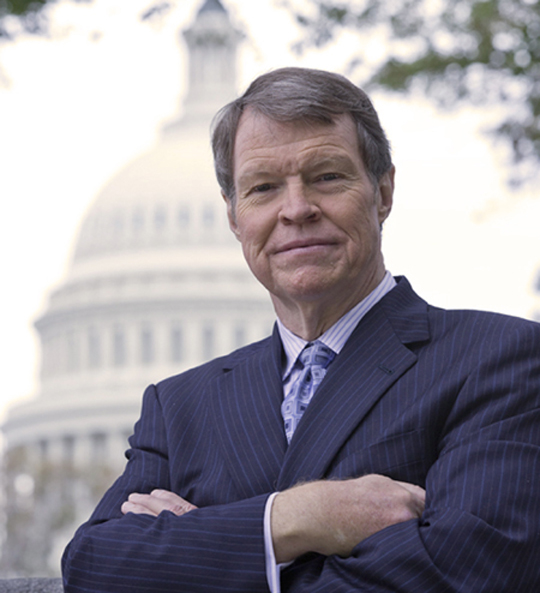
Merrill Matthews, Ph.D., is a resident scholar with the Institute for Policy Innovation, a research-based, public policy “think tank.” He is a health policy expert and opinion contributor at The Hill. He also serves on the Texas Advisory Committee of the U.S. Commission on Civil Rights.
Dr. Matthews is a past president of the Health Economics Roundtable for the National Association for Business Economics, the largest trade association of business economists. Dr. Matthews also served for 10 years as the medical ethicist for the University of Texas Southwestern Medical Center’s Institutional Review Board for Human Experimentation, co-author of On the Edge: America Faces the Entitlements Cliff, and has contributed chapters to several books, including Physician Assisted Suicide: Expanding the Debate and The 21st Century Health Care Leader and Stop Paying the Crooks (on Medicare fraud).
He has been published in numerous journals and newspapers, including The Wall Street Journal, Investor’s Business Daily, Barron’s, USA Today, Forbes magazine and the Washington Times. He was an award-winning political analyst for the USA Radio Network.
Dr. Matthews received his Ph.D. in Humanities from the University of Texas at Dallas.
Lessons from the Republican Health Care Disaster
Republicans said for years they wanted to repeal Obamacare in the worst way—and they did.
Why Democrats Should Love Cruz's Health Care Amendment
Senator Ted Cruz (R-TX), along with Senator Mike Lee (R-UT), may have the solution to the health care stalemate—and it just might allow a functioning health insurance market to emerge once again for most people.
Agency to Drop Royalty Rates for US Gulf Lease Sale
In a Wall Street Journal opinion piece Sunday, Merrill Matthews of the conservative think tank Institute for Policy Innovation highlighted the differences in production and royalty rats between federal and state lands.
Price Transparency Is Critical to Drug Pricing Solutions
Prescription drug costs are a hot political issue, not as much because of the share of the U.S. health care dollar they consume but because consumers pay a larger share of their drug costs out of pocket than they do for other health care.
'You Dingbats Can't Go Home Until You Do Your Job'
If the GOP leadership were to postpone or cancel the August recess, members of Congress would have time--and a lot more pressure--to accomplish what they promised they'd do.
Mineral Rights Can Make You Rich
“So much of our land was closed to development,” President Trump observed in a recent energy speech. “We’re opening it up.” If he makes good on that promise, it will give the economy a major boost, along with millions of royalty owners.
Ted Cruz & Mike Lee Have An Rx
To be clear, this is not the free-market approach that many of us would like, but neither the House nor the Senate has enough votes to return health insurance to a free market, said Merrill Matthews. What Cruz is trying to do is create a situation where the vast majority of people in the individual health-insurance market would have a wide range of affordable health-insurance options — just like they used to before Obamacare.”
More Competition And Perhaps Lower Prices Coming To The Drug Industry
Trump administration officials have drafted a presidential executive order intended to address the cost of and access to prescription drugs. That’s good news, because the left plans to make drug costs and access one of its major political bludgeons.
If Lawmakers Had Stuck to Original ACA 'Repeal,' Bill Would be Law, Market Observers Say
If Republican lawmakers had stuck to their first strategy of immediately repealing the Affordable Care Act without worrying about a replacement that bill would probably be law by now, said Institute for Policy Innovation resident scholar Merrill Matthews.
Now Supporting Immediate ACA Repeal, Would Have Been Better If Rand Paul Had Never Opposed GOP's Original Plan
Failing to gain the votes needed to repeal and replace Obamacare, President Donald Trump and some Senate Republicans, including Sen. Rand Paul (R-Ky.), are today calling for a return to the original Republican strategy of passing repeal legislation immediately, and then put together a replacement bill, perhaps in August.






